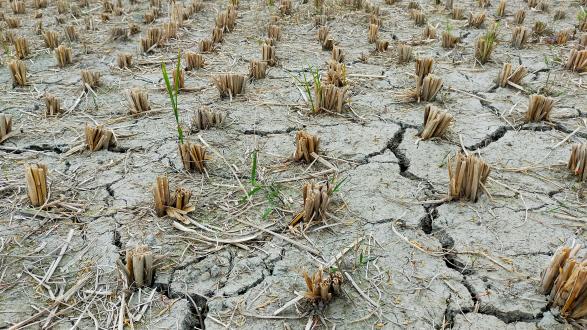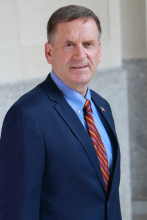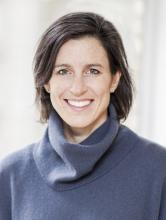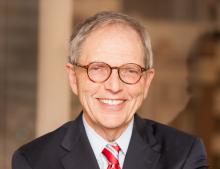Zoom
The conversation will explore the various ways in which food security and civil unrest intersect. Our discussion will examine different regions, highlighting the role of food shortages, price volatility, and unequal distribution play in triggering social unrest. We will also investigate how climate change, conflict, and economic disparities contribute to food insecurity, exacerbating the risk of civil unrest.
Food security, defined as the availability, access, and utilization of nutritious food for all individuals, is not merely a matter of sustenance. It has far-reaching implications for social, economic, and political stability. When food security is compromised, societies become vulnerable to a range of socio-political tensions that can lead to civil unrest. From grain prices rising in Egypt prior to Arab Spring to the global wheat supply chain being disrupted by the war in Ukraine, the links between geopolitical conflict and food are clear.
The webinar will also shed light on the ripple effects of civil unrest on food systems. We will discuss how disruptions in agriculture, food production, and distribution channels can perpetuate a cycle of food insecurity, further intensifying social and political instability. Our panelists will analyze the impacts on vulnerable populations, including the marginalized, displaced, and impoverished, and explore potential solutions to address these challenges.
Featuring:
Ambassador Mark Green (ret.) serves as the President, Director, and CEO of Washington, DC’s Wilson Center. Wilson is unique among American policy institutes in that it’s Congressionally chartered, scholarship driven, and fiercely non-partisan and independent. Green is also the author of the “Stubborn Things” blog.From 2017 to 2020, Green served as Administrator of the U.S. Agency for International Development. He has also served as President of the International Republican Institute, Executive Director of the McCain Institute, President of the Initiative for Global Development, and senior director at the U.S. Global Leadership Coalition. Green served as the U.S. Ambassador to Tanzania from mid-2007 to early 2009, as well as four terms in the U.S. House of Representatives representing Wisconsin’s 8th District.
Green served on the Board of Directors of the Millennium Challenge Corporation during both the Obama and Trump Administrations, and has served on the Bush Institute’s Human Freedom Advisory Council and the Board of the Consensus for Development Reform. He holds a law degree from the University of Wisconsin Law School and a bachelor’s degree from the University of Wisconsin–Eau Claire. In 2012, he was awarded an honorary Doctor of Science from Georgetown University’s School of Nursing and Health Studies. He has received special honors from President Jakaya Kikwete of Tanzania and President Ivan Duque of Colombia.
Sarah Smith leads the Homelessness, Refugees, and Safe Water Initiatives, as well as the Disaster and Program-Related Investments for the Conrad N. Hilton Foundation. Smith has worked in the humanitarian sector throughout Asia, Africa, Latin America, and the Middle East for 25 years. Prior to joining the Foundation, she was the head of Education, Child Protection and Youth Livelihoods for the International Rescue Committee (IRC). At the IRC, Smith led the design of several historic programs, including Ahlan SimSim, an early childhood development initiative with Sesame Workshop in Iraq, Jordan, Lebanon and Syria, which won the MacArthur Foundation’s inaugural $100 million 100&Change prize. Smith has been at the forefront of bringing rigorous, actionable research into humanitarian settings, and was named a “Leading Global Thinker” by Foreign Policy Magazine in 2016. She began her career as a Head Start preschool teacher in Ohio and as a Peace Corps volunteer in Namibia. Smith earned a master’s degree in international policy from Harvard University Graduate School of Education, and a doctorate in education from Columbia University, Teachers College.
Dr. Jerrold D. Green is the President and Chief Executive Officer of the Pacific Council on International Policy in Los Angeles. He is concurrently a Research Professor at the University of Southern California Annenberg School for Communication and Journalism. Green was previously a Partner at Best Associates in Dallas, Texas, a privately held merchant banking firm with global operations. He also occupied senior management positions at the RAND Corporation where he served as the Director of International Programs and Development and was awarded the RAND Medal for Excellence. Dr. Green has a B.A. (summa cum laude) from the University of Massachusetts/Boston, as well as an M.A. and Ph.D. in Political Science from the University of Chicago. His academic career began at the University of Michigan where he was a professor in the Department of Political Science and the Center for Near Eastern and North African Studies. He subsequently joined the University of Arizona where he became a Professor of Political Science and Sociology and Director of the Center for Middle Eastern Studies.
Green has lived and worked in Egypt, where he was a Fulbright Fellow, Iran, and Israel. He has lectured on six continents and been a visiting fellow at the Chinese Academy of Social Science's West Asian Studies Center in Beijing; a visiting lecturer at the Havana-based Center for African and Middle East Studies (CEAMO), and a fellow at the Australian Defense College, and delivered papers at conferences sponsored by the Iranian Institute of International Affairs in Tehran. Dr. Green led three U.S. Department of Defense-sponsored Pacific Council delegations to Afghanistan, and one to Iraq, and has represented the Pacific Council as an observer at the legal proceedings being conducted at Guantanamo Bay, Cuba, by the U.S. Department of Defense. Read more.







